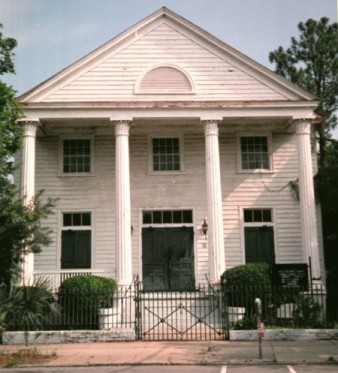| Christian
congregations, later denominations, gathered and led by African-Americans.
|
 |
|
African
Methodist Episcopal Church, Charleston, SC
|
African slavery
first appeared in Virginia in 1619. Slave owners feared that the Africans
who received baptism would demand freedom; but Anglican missionaries were
sometimes allowed to evangelize slaves. In the Great
Awakening and subsequent revivals, African-Americans, both slave and
free, began to convert to Christianity. Most important for the spread
of Christianity among Blacks was African American preaching. During the
years of slavery, African-American churches existed in many forms, ranging
from secret meetings on plantations to public worship led by African ministers.
The Methodists and the Baptists
had the greatest appeal because they preached for conversion, worshipped
informally and with gusto, empowered lay preachers, and sought a disciplined
Christian life. Probably the first independent African-American Baptist
church was organized in Silver Bluff, Georgia around 1773. Richard
Allen formed Bethel Church in Philadelphia in 1793 and the African
Methodist Episcopal Church was established as a denomination in 1816.
The African Methodist Episcopal Zion Church traces its beginnings to a
New York congregation founded by Peter Williams in 1796. Many African-American
Christians, such as Frederick
Douglass, participated in abolitionism.
After the Civil War and well into the twentieth century, the African-American
Churches were the bulwark of Black communities, and the home of leaders
such as Martin Luther King, Jr.
|